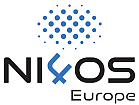Subject: rare blood group
Subject: red blood cell antigen frequency
Subject: blood donor registry
Year: 2022
Type: Article
Title: Rare blood groups in ABO, Rh, Kell systems – biological and clinical significance
Author: Ristovska, Elena
Author: Makarovska Bojadzieva, Tatjana
Author: Velkova, Emilija
Author: Hristova Dimceva, Anita
Author: Todorovski, Bojan
Author: Tashkovska, Marija
Author: Grubovic Rastvorceva, Radica
Author: Bosevski, Marijan
Abstract: Background: The frequency of ABO, Rh and Kell blood group antigens differs among populations of different ethnic ancestry. There are low-frequency antigens (<1%) and high-frequency antigens (>90%). A rare blood group is defined as the absence of a high-frequency antigen in the general population, as well as absence of multiple frequent antigens within a single or multiple blood group systems. Aim: To perform red blood cell typing and to calculate the antigen and phenotype frequencies, in order to identify rare blood group donors within the clinically most important АВО, Rh and Kell systems. Material and Methods: АВО, Rh (D, C, E, c, e) and Kell (K) antigen typing was performed using specific monoclonal sera and microplate technique, while Cellano (k) typing was performed with a monoclonal anti-k, antihuman globulin and column agglutination technique. Weak ABO subgroups were determined using the absorption elution method or molecular genotyping (PCR-SSP). Results: ABO antigen frequency is: A (40.89%), O (34.22%), B (16.97%), AB (7.92%) and weak ABO subgroups (0, 009 %). The established genotypes were AxO1 (0, 0026%) and AxB (0, 001%). Rh antigen frequency is: D (85.79%), C (71.7%), c (76.0%), E (26.0%) and е (97.95%). The most common Rh phenotype is the DCcee (32.7%) while the rarest phenotype is the DCCEE phenotype (0. 003%). The prevalence of K and k antigen is 7.5% and 99.94%, respectively. The frequency of the rare phenotype K+k- is 0.06%. Conclusion: Large scale phenotyping of blood group antigens enables the identification of blood donors with rare blood groups for patients with rare phenotypes or with antibodies to high-frequency antigens and to frequent antigens within one or more blood group systems.
Publisher:
Relation: Prilozi (Makedonska akademija na naukite i umetnostite. Oddelenie za medicinski nauki)
Identifier: oai:repository.ukim.mk:20.500.12188/23967
Identifier: Macedonian Academy of Sciences and Arts
Identifier: http://hdl.handle.net/20.500.12188/23967


